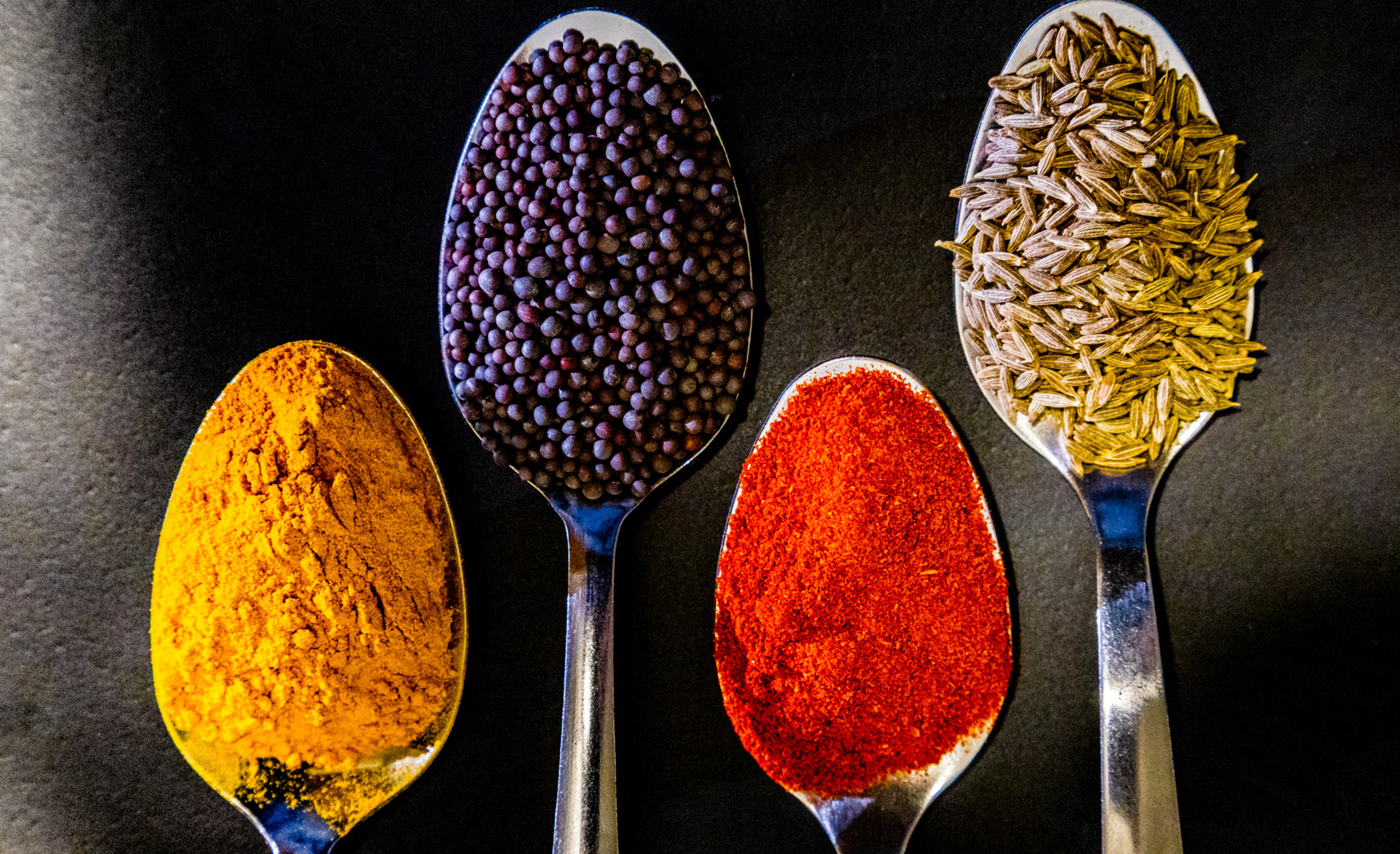
Medicinal Uses For Spices
Let’s embark on an exciting journey into the medicinal uses for spices and discover how these small yet mighty ingredients can enhance both your meals and health. Spices have long been the stars of our kitchens, adding flavor and aroma to our favorite dishes. But did you know they also hold a treasure trove of healing properties?
From turmeric’s vibrant yellow hue to the comforting warmth of cinnamon, these everyday ingredients can do wonders for your health. Imagine being able to harness the power of spices not just for taste but as natural remedies that support your well-being. Whether you’re looking to boost your immunity or alleviate digestive issues, there’s a spice for that!
The Benefits of Incorporating Spices into Your Diet
Incorporating spices into your diet can transform not just the flavor of your meals, but also their health benefits. These vibrant additions are packed with essential nutrients and antioxidants. They can enhance digestion, boost immunity, and even contribute to mental clarity.
Many spices possess anti-inflammatory properties that may help alleviate chronic pain or reduce the risk of disease. For instance, turmeric is known for its curcumin content, which has been studied extensively for its healing potential.
Spices like cinnamon offer more than a comforting aroma; they can aid in regulating blood sugar levels too. This means a sprinkle here and there doesn’t just tantalize your taste buds but could support overall metabolic health as well.
Adding a variety of spices to everyday dishes makes eating healthier enjoyable and exciting. Your body will thank you while delighting in new flavors!
Top Medicinal Spices and Their Uses:
Turmeric stands out for its vibrant yellow hue and potent anti-inflammatory properties.
– Turmeric: The Anti-Inflammatory Spice
Turmeric, often hailed as the golden spice, is renowned for its powerful anti-inflammatory properties. Its active compound, curcumin, has been extensively studied and linked to a myriad of health benefits.
Research shows that turmeric can help combat chronic inflammation in conditions like arthritis and heart disease. Just a sprinkle in your meals could support joint health and reduce discomfort.
Incorporating turmeric into your diet is simple. Use it in curries, soups, or even smoothies for an extra health boost. Some people opt for supplements to ensure they get adequate amounts of curcumin.
When using turmeric, pairing it with black pepper enhances absorption significantly. This combination amplifies its healing effects while making your dishes more flavorful.
Beyond its culinary uses, turmeric can be brewed into a soothing tea or added to warm milk for a comforting drink before bedtime.
– Cinnamon: A Natural Blood Sugar Regulator
Cinnamon is more than just a delightful spice for your morning coffee or baked goods. It’s gaining recognition as a natural blood sugar regulator, making it an essential addition to your diet.
Studies suggest that cinnamon can enhance insulin sensitivity. This helps the body utilize glucose more efficiently, which is especially beneficial for those managing diabetes or prediabetes.
The active compounds in cinnamon may also lower fasting blood sugar levels and improve overall metabolism. It’s like giving your body a gentle nudge towards better health.
Incorporating this aromatic spice into meals is easy and versatile. Sprinkle it on oatmeal, blend it into smoothies, or use it in savory dishes for added depth of flavor.
With its warm aroma and numerous health benefits, cinnamon truly stands out among medicinal spices worth exploring further.
– Ginger: A Powerful Digestive Aid
Ginger has been cherished for centuries as a versatile spice, particularly renowned for its digestive properties. This root is packed with gingerol, a bioactive compound that offers numerous health benefits.
When consumed, ginger can help alleviate nausea and reduce bloating. It’s especially effective for those experiencing motion sickness or morning sickness during pregnancy. Sipping on ginger tea after meals can soothe discomfort and promote healthy digestion.
Moreover, this powerful spice stimulates the production of digestive enzymes. This enhances nutrient absorption in the gut, making it an ideal addition to your diet.
Incorporating fresh or dried ginger into your cooking adds flavor while providing medicinal perks. Whether grated into stir-fries or steeped as tea, it’s easy to enjoy its benefits daily. Just a small amount goes a long way in supporting digestive health without any harsh side effects.
– Garlic: Nature’s Antibiotic
Garlic has long been celebrated for its impressive health benefits. Often referred to as “Nature’s Antibiotic,” this potent bulb packs a powerful punch against infections.
It contains allicin, a compound known for its antimicrobial properties. This makes garlic effective in combating bacteria, viruses, and fungi alike. Incorporating raw or lightly cooked garlic into your meals can offer significant immune support.
Beyond fighting off infections, garlic is also linked to reducing blood pressure and improving heart health. Its natural compounds promote better circulation while lowering cholesterol levels.
The versatility of garlic allows it to be easily added to various dishes—soups, stews, marinades, and even salads benefit from its bold flavor. For those looking for an extra health boost without resorting to pharmaceuticals, integrating more garlic into your diet might just be the answer you need.
– Cloves: A Powerful Pain Reliever
Cloves are more than just a popular spice in your kitchen; they offer remarkable health benefits. Known for their distinctive aroma, cloves have been used in traditional medicine for centuries. Their potent compounds can help alleviate pain effectively.
Eugenol, the active ingredient found in cloves, possesses strong analgesic properties. This makes them particularly useful for managing dental pain and headaches. Simply applying clove oil to the affected area can provide quick relief.
Additionally, cloves may reduce inflammation throughout the body. This quality further enhances their ability to combat various types of discomfort. Incorporating this spice into meals or using it as an essential oil can be a natural way to ease pain without relying solely on over-the-counter medications.
With such versatile applications, adding cloves to your diet could be beneficial for both flavor and well-being. They may just become an essential part of your holistic approach to health.
– Cayenne Pepper: Boosting Metabolism and Improving Heart Health
Cayenne pepper is more than just a fiery addition to your meals. This vibrant spice contains capsaicin, a compound known for its impressive health benefits.
Regular consumption of cayenne can give your metabolism a boost. It increases the rate at which the body burns calories, making it easier to manage weight. Adding this spice to your diet could help you feel warmer and more energized throughout the day.
Beyond metabolic benefits, cayenne also supports heart health. It helps improve circulation by widening blood vessels and reducing cholesterol levels. This combination decreases the risk of cardiovascular diseases over time.
Incorporating cayenne into dishes doesn’t require much effort; just a sprinkle can elevate flavor while enhancing wellness. Whether in soups, sauces, or even smoothies, it’s an easy way to reap its rewards without sacrificing taste.
Other Medicinal Spices to Consider
While turmeric, cinnamon, and ginger often steal the spotlight, several other spices deserve your attention for their medicinal properties. Black pepper is a versatile spice that enhances nutrient absorption. It contains piperine, which may help improve digestion and reduce inflammation.
Fenugreek seeds are another powerhouse. Known for regulating blood sugar levels, they can also aid in lactation for nursing mothers. Rosemary isn’t just a fragrant herb; it has antioxidant benefits that combat free radicals in the body. It’s believed to support memory function as well.
Cardamom offers digestive benefits and may even freshen breath naturally. Its unique flavor adds depth to both sweet and savory dishes. Coriander provides anti-inflammatory effects while potentially lowering cholesterol levels. Adding these spices to your diet can offer numerous health advantages beyond mere flavor enhancement.
How to Use Spices for Medicinal Purposes
Incorporating spices into your daily routine can be an enjoyable journey. Start by adding them to your meals. A sprinkle of turmeric on roasted vegetables or a dash of cinnamon in your morning oatmeal works wonders. For tea enthusiasts, infuse ginger slices or cloves in hot water for a soothing drink that aids digestion and relieves pain.
Create spice-infused oils for salad dressings; blend garlic with olive oil for a zesty kick that boasts antibacterial properties. Smoothies are another great way to incorporate spices. A pinch of cayenne pepper can elevate the flavor while boosting metabolism.
Experimenting with different recipes allows you to discover what suits your palate best, making healing through spices not just beneficial but also delicious. Always remember to listen to your body and adjust accordingly as some may react differently than others when using these potent ingredients for medicinal purposes.
Precautions and Side Effects
When exploring the medicinal uses for spices, it’s essential to recognize potential precautions and side effects. While many spices offer health benefits, they can also interact with medications or exacerbate certain conditions. For instance, turmeric is known for its anti-inflammatory properties but may thin the blood.
This could pose risks if you’re on anticoagulants. Cinnamon contains coumarin in high amounts, which can be harmful to the liver over time. Moderation is key when incorporating it into your diet. Ginger might irritate some individuals’ stomachs or worsen heartburn for those prone to acid reflux.
Always consult a healthcare professional before making significant changes to your spice intake, especially if you have underlying health issues or are pregnant. Paying attention to how your body reacts will help ensure that you reap the healing benefits while minimizing any adverse effects.
Conclusion: Using Spices for Medicinal Purposes
Spices are not just for flavor; they hold a treasure trove of health benefits. By integrating medicinal spices into your daily meals, you can enhance both your culinary experience and well-being. From turmeric’s anti-inflammatory properties to ginger’s digestive support, these natural remedies offer an array of therapeutic effects.
To reap the most benefits, consider exploring different recipes that highlight these spices. Whether adding cinnamon to your morning oatmeal or using garlic in savory dishes, small changes can lead to significant health improvements over time.
Always be mindful of how much you’re consuming and consult with healthcare professionals if you have specific health conditions or concerns about interactions with medications. Spices can be powerful allies in promoting good health when used wisely.
Embrace the vibrant world of spices as part of your journey toward wellness and discover how their healing potential can enrich your life.






